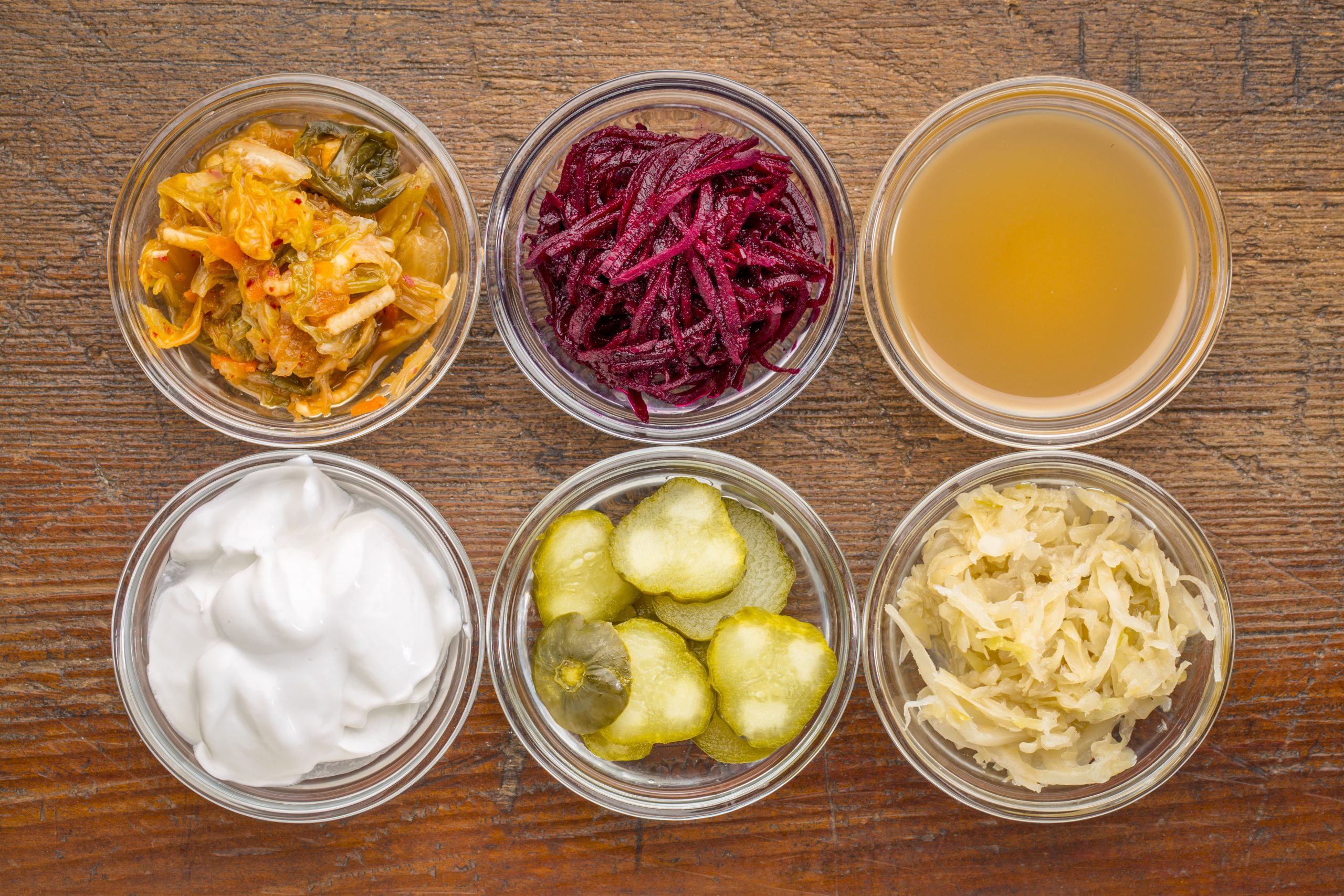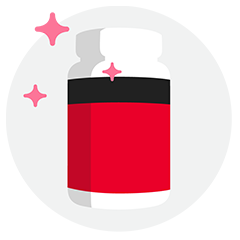The connection between probiotics and immune health

Our small and large intestines are home to hundreds of species of bacteria and other microorganisms, which are collectively referred to as the gut microbiome. The cells that make up the surface lining of the small intestine, enterocyte cells, have the tough job of deciding what gets let in, like water and nutrients, and what gets kept out. Since these functions of absorption and defense are so essential, a full 80% of our immune system can be found in our gut, helping to maintain and protect the border. The bacteria inhabiting our gut are in constant communication with our own immune network, working hard to keep us healthy.
Growth of pathogens in the GI tract
For healthy gut flora to thrive, they require a healthy environment. Various lifestyle factors can create conditions in our gut that promote the overgrowth of harmful bacteria. Typically, a diverse variety of microbial species will provide a system of checks and balances to maintain balance, but when we compromise our gut health, we make dysbiosis (the dominance of pathogenic microbes) more likely.
What causes gut health to decline?
Diet
Foods high in sugar, simple starches, dairy, antibiotics, and excess alcohol will all encourage bad bacteria to thrive either by nourishing them directly or killing off good bacteria. In addition, excess intestinal inflammation resulting from diet choices will challenge the integrity of the gut membrane. This disrupts the physical environment and sets the stage for yeast, fungi, pathogenic bacteria, or even parasites to take over.
Lifestyle
Even mental and emotional stress can impact our gut and immune health. The fight or flight state, which is activated in times of stress, will seriously compromise digestive capabilities, and food particles that have not been adequately broken down are much more likely to trigger inflammatory immune responses. Reactions like these are often connected to increased intestinal permeability, also known as leaky gut.
Internal bodily stressors like smoking, food additives, toxic metals, radiation, and other commonly encountered toxic elements also challenge the physical health of our intestinal membrane and help set the scene for bad bugs to thrive.
What are probiotics?
Probiotics are the good guys: these bacteria live in symbiotic harmony within us, protecting and enhancing our health. The natural metabolic processes of these beneficial microbes create enzymes, vitamins, short-chain fatty acids, and other important byproducts. We can contribute to the population of happy, health-giving microbes by eating fermented foods (like yogurt, sauerkraut, kimchi, and miso) and taking probiotic supplements.
What can probiotics do for my immune system?
Beneficial bacteria go beyond eliminating nasty bugs and creating metabolic products that we can use. Some of their metabolites act as signaling molecules, providing complex cues to our immune system. This is the chemical dialogue that helps govern and coordinate the hustle and bustle of gut traffic.
Benefits for immune function can be seen in very real ways, as probiotic supplementation has been shown to consistently reduce inflammation, decrease infection times, and lessen allergic responses to dairy and other potentially problematic foods.
When should we be taking probiotics?
Whenever our good bacteria have been depleted by a round of antibiotics or a stressful period in our life, or if our diet does not include fermented foods, we may benefit from probiotic supplements. They can also be useful in treating digestive issues, irregular bowel movements, bloating, autoimmunity and malabsorption.
How do I choose a probiotic?
The best strains of probiotic bacteria will survive our stomach acid so that they can arrive in the gut alive and ready to get to work. Once there, they will encourage the growth of other species of beneficial organisms, filling out the rainbow of a healthy and diverse gut microbiome.
The two most common families of bacteria taken in supplements are lactobacillus and bifidobacterium, strains that can also be found in a healthy gut biome. Both have the potential to regulate immune function in beneficial ways, from increased white blood cells and enhanced natural killer cell activity to balancing cytokines for healthy inflammatory responses. They are even used to temper the autoimmune responses characteristic of ulcerative colitis and Crohn’s disease.
However, both families of probiotic bacteria include a host of different subtypes, especially lactobacilli, which feature over 170 different individual species! This can make it difficult to gauge the quality of each supplement and underlines the importance of using specific, well-researched strains from responsible manufacturers. The DDS superstrain of lactobacillus acidophilus has been shown to raise populations of other beneficial bacteria, including other lactobacilli, and reduce levels of bad bacteria.
Shelf stable vs. refrigerated
Shelf stable probiotics are typically freeze-dried to preserve biological activity without requiring refrigeration. Both forms of supplements have well-studied potential to boost gut health. If you will be traveling or taking your supplements on the go, you may find that high-quality shelf stable options are a convenient way to support your microbiome on the move.
Probiotics: The key to immune health
Beneficial strains of bacteria help optimize our immune system to protect our gut barrier and keep us healthy. It’s important not to underestimate the key role these friendly microorganisms play in our overall well-being. Fostering a diverse and well-balanced microbiome will not only help with our digestion, nutrient absorption, and elimination, but it will keep our immune function robust, adaptable, and protective.
Sources:
The effect of probiotics on inflammatory biomarkers: a meta-analysis of randomized clinical trials






